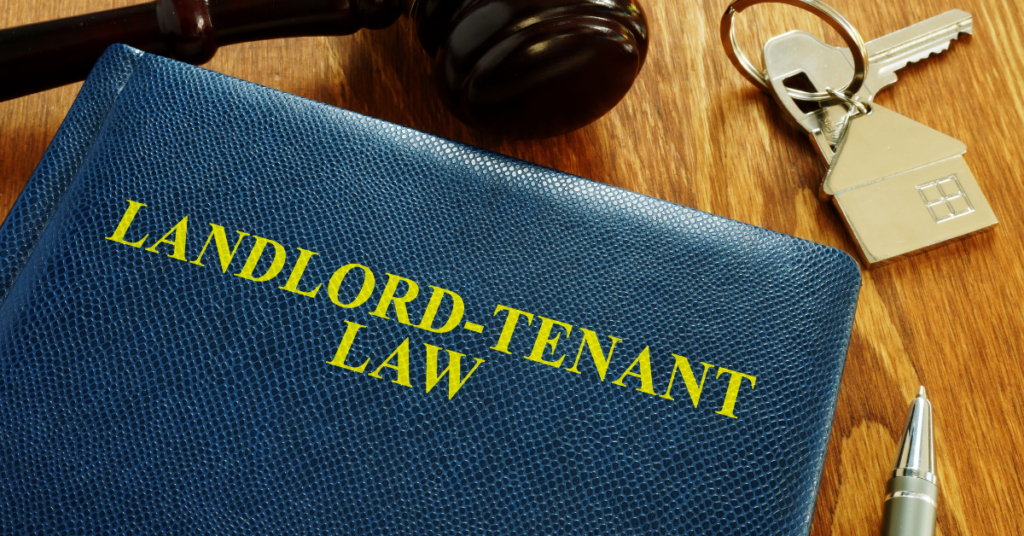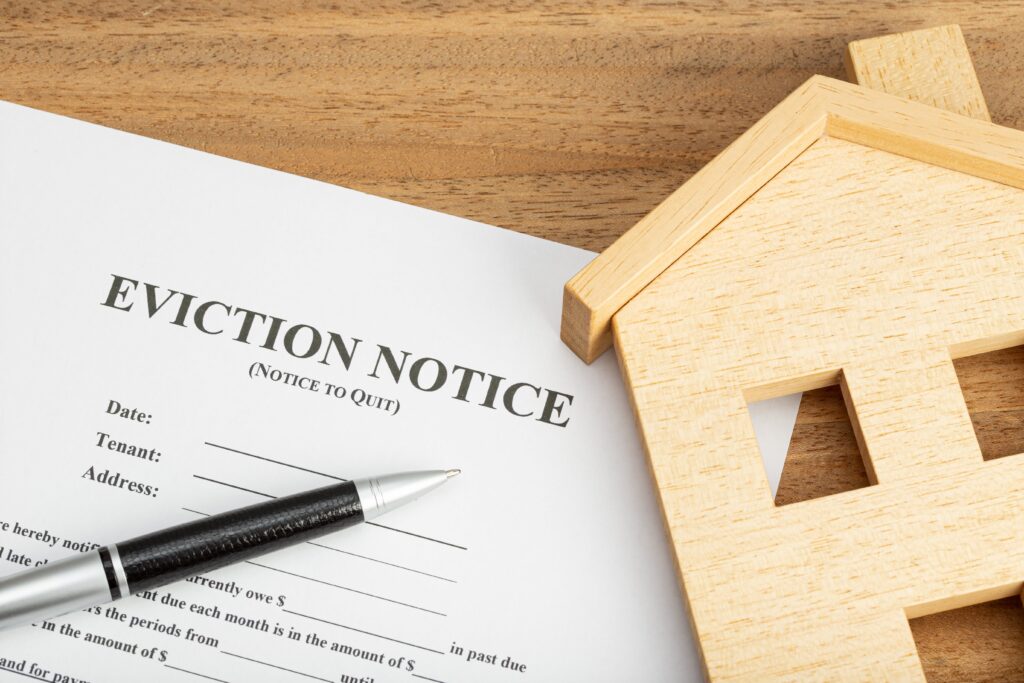A Guide to Massachusetts Tenant-Landlord Laws
Reading Time: 11 minutesNavigating the legal landscape of rental housing can be incredibly complex, especially for owners and managers of Massachusetts properties. State statutes, city ordinances, federal regulations, and case law precedents intertwine to create a web of obligations and best practices for both landlords and tenants to follow. Even experienced real estate investors can trip up over…

Navigating the legal landscape of rental housing can be incredibly complex, especially for owners and managers of Massachusetts properties. State statutes, city ordinances, federal regulations, and case law precedents intertwine to create a web of obligations and best practices for both landlords and tenants to follow. Even experienced real estate investors can trip up over some of the technicalities or recent changes in this domain.
This guide aims to unravel some of that complexity and provide practical clarity around Massachusetts tenant-landlord laws.
Table of Contents
Understanding Security Deposit Rules

Limits on Allowable Amounts
One of the critical aspects of Massachusetts tenant-landlord laws revolves around the limitations imposed on the amounts landlords can collect as security deposits. The state mandates strict regulations to ensure fairness and protect tenants. Landlords must be aware of these limitations to avoid legal complications and maintain compliance with the law.
Currently, Massachusetts law stipulates that the maximum allowable security deposit is equal to the first month’s rent. This limitation is in place to prevent excessive financial burdens on tenants and promote a more accessible rental market. Landlords need to carefully assess and calculate their security deposit amounts, ensuring they align with this established limit.
Deposit Holding Requirements
Understanding where and how security deposits are held is crucial for landlords in Massachusetts. The state imposes specific procedures to ensure the proper handling of these funds, contributing to transparency and accountability in the landlord-tenant relationship.
Landlords are required to hold security deposits in a designated escrow account in a financial institution within the state. This ensures that the funds remain separate from the landlord’s personal finances and are easily accessible for return to tenants when necessary. Failure to adhere to these deposit holding requirements can result in legal consequences, emphasizing the importance of strict compliance.
Return Procedures
Returning security deposits involves a series of procedural steps that landlords must follow diligently. Failure to do so can lead to disputes and legal challenges. To navigate this process smoothly, landlords should be well-versed in the step-by-step procedures outlined by Massachusetts law.
Upon the termination of a lease, landlords are generally required to return the security deposit, minus any lawful deductions, within 30 days. This timeframe underscores the urgency and responsibility associated with returning these funds promptly. Understanding the specific steps, such as conducting a thorough inspection and providing an itemized list of deductions, is paramount for landlords aiming to avoid legal pitfalls and maintain positive tenant relationships.
Allowable Usages
Landlords must have a clear understanding of the permissible uses of security deposit funds to avoid potential legal issues. Massachusetts law outlines specific situations in which these funds can be utilized, providing clarity for both landlords and tenants.
Common allowable deductions include unpaid rent, repair costs for damages beyond normal wear and tear, and expenses related to cleaning the property. Landlords need to communicate these allowable usages clearly in the lease agreement and provide a detailed itemization when returning the security deposit. This transparency fosters trust and ensures that both parties are on the same page regarding the purpose and handling of these funds.
Following Anti-Discrimination Laws

Protected Classes
Massachusetts tenant-landlord laws upholds a commitment to fair housing practices by identifying and protecting specific classes from discrimination. Understanding these protected classes is essential for landlords to ensure their rental policies adhere to state regulations. Currently, Massachusetts prohibits discrimination based on race, color, national origin, ancestry, sex, gender identity, sexual orientation, disability, religion, and familial status.
Landlords must be diligent in recognizing and respecting the rights of individuals within these protected classes. Discrimination based on any of these factors is not only ethically wrong but also illegal under Massachusetts law. By acknowledging and embracing the diversity within these protected classes, landlords contribute to a more inclusive and just rental environment.
Fair Rental Policies
Creating fair rental policies is a cornerstone of responsible property management in Massachusetts. Landlords should develop policies that treat all applicants and tenants equally, irrespective of their membership in any protected class. This not only aligns with legal obligations but also promotes a positive and inclusive rental experience for all individuals.
Best practices for fair rental policies include establishing clear and consistent criteria for tenant selection, avoiding overly restrictive requirements that may disproportionately impact certain groups, and steering clear of language that may imply discrimination. A proactive and intentional approach to crafting fair policies sets the foundation for a harmonious landlord-tenant relationship.
Avoiding Discrimination Accusations
Proactively avoiding discrimination accusations is crucial for landlords who aim to foster a fair and inclusive rental environment. By implementing strategic measures and staying informed on anti-discrimination laws, landlords can significantly reduce the risk of legal challenges.
To avoid discrimination accusations, landlords should:
- Educate Themselves: Stay informed about the latest updates in anti-discrimination laws and regularly review existing policies to ensure compliance.
- Standardize Screening Criteria: Develop standardized criteria for tenant selection that are applied consistently to all applicants, promoting transparency and fairness.
- Offer Reasonable Accommodations: Accommodate tenants with disabilities by providing reasonable modifications to ensure equal access to housing.
- Document Decisions: Maintain detailed records of the tenant selection process, including the criteria used for decision-making, to demonstrate fairness and impartiality.
- Provide Clear Communication: Communicate rental policies to applicants and tenants, making sure they understand the criteria for selection and the reasons behind any decisions.
By actively embracing and incorporating these strategies, landlords not only reduce the risk of legal complications but also contribute to creating a rental market that is welcoming and accessible to individuals from all walks of life.
The commitment to fair housing practices not only aligns with the law but also reflects a dedication to fostering diversity, equity, and inclusion in the Massachusetts rental landscape.
Knowing the Eviction Process Inside Out

Required Notices
The eviction process in Massachusetts begins with the issuance of required notices, a critical step to ensure legal compliance. Landlords must be well-versed in the types of notices and the circumstances under which they are served.
Common notices include:
- Notice to Quit: Typically the first step, this notice informs tenants of lease violations and provides a specific timeframe to remedy the issue or vacate the premises.
- Notice to Quit for Nonpayment of Rent: Issued when tenants fail to pay rent, specifying the amount owed and the timeframe for payment.
- Notice of Lease Termination: Served when a lease agreement is ending without renewal, providing advance notice as required by law.
Landlords must adhere strictly to the Massachusetts tenant-landlord laws and the legal requirements for notice content, delivery methods, and timelines. Failure to do so can result in delays and complications in the eviction process.
Eviction Court Procedures
Navigating the intricacies of eviction court procedures in Massachusetts is paramount for landlords seeking a swift and lawful resolution. The process involves multiple stages, each demanding careful attention to detail.
- Filing the Complaint: The landlord initiates the eviction process by filing a complaint with the appropriate court, specifying the grounds for eviction.
- Summons and Complaint Service: Tenants are served with a summons and complaint, officially notifying them of the legal action against them.
- Answer and Discovery: Tenants have the opportunity to respond to the complaint, presenting their defenses. Discovery may also take place, allowing both parties to gather evidence.
- Court Hearing: A court hearing is scheduled to review the case, where both parties present their arguments and evidence.
- Judgment and Execution: If the court rules in favor of the landlord, a judgment is issued. The landlord can then seek an execution for possession if the tenant does not voluntarily vacate.
Understanding the procedural steps, deadlines, and court requirements is vital to a successful eviction process.
Grounds for Eviction
Exploring the valid grounds under which a tenant can be evicted is fundamental to a legally justified eviction. Massachusetts law outlines specific reasons for eviction, including:
- Nonpayment of Rent: Failure to pay rent within the specified timeframe.
- Lease Violations: Breach of lease terms, such as illegal activities on the premises.
- Expiration of Lease: The natural conclusion of a lease term.
- Severe Damage to Property: Willful or negligent damage to the property beyond normal wear and tear.
Landlords must ensure that eviction is pursued only on legally justifiable grounds, preventing legal repercussions.
Handling Abandoned Belongings
Recognizing the responsibilities landlords have when dealing with a tenant’s abandoned belongings is a critical aspect of concluding the eviction process. Massachusetts law requires landlords to take specific steps to handle abandoned property:
- Inventory and Storage: Document and store abandoned belongings in a safe location.
- Notification: Notify the tenant of the storage location and the deadline for retrieval.
- Disposal: If the tenant does not claim the belongings within the specified timeframe, landlords can proceed with disposal in compliance with state regulations.
By adhering to these steps, landlords not only fulfill legal obligations but also conclude the eviction process with professionalism and compliance. Understanding the eviction process inside out empowers landlords to navigate legal complexities with confidence, ensuring a fair and lawful resolution in Massachusetts.
Other Important MA Landlord-Tenant Regulations

Lead Paint Disclosure Requirements
One of the crucial aspects of responsible property management in Massachusetts is compliance with lead paint disclosure requirements. Landlords must navigate these regulations to ensure the safety of tenants, especially in older properties where lead-based paint may be present.
The law mandates that landlords disclose the presence of lead paint hazards to tenants. This disclosure must occur before the signing of a lease or rental agreement. Additionally, landlords must provide tenants with informational pamphlets outlining the risks and preventive measures related to lead exposure. Complying with these regulations not only upholds legal obligations but also prioritizes the well-being of tenants.
Allowing Entry with Proper Notice
Respecting tenants’ privacy is paramount in Massachusetts, and landlords must understand the rules and guidelines for entering rental units with proper notice. State law requires landlords to provide advance notice before entering a rented property, except in cases of emergency.
The standard notice period is 48 hours, and landlords must communicate the purpose of the entry. This provision ensures that tenants have sufficient time to prepare for the intrusion into their living space, fostering a sense of security and privacy.
Implied Warranty of Habitability Standards
Exploring the standards set by the implied warranty of habitability is fundamental to fulfilling landlords’ responsibilities for maintaining livable conditions in rental properties. The implied warranty of habitability is a legal concept that implies certain standards for the condition of rental properties in Massachusetts.
Landlords must provide rental units that meet basic health, safety, and sanitary requirements. This includes ensuring proper heating, plumbing, and electrical systems, as well as addressing pest infestations and other potential health hazards. Failure to meet these standards may result in legal consequences, emphasizing the importance of proactive maintenance and responsiveness to tenant concerns.
Rules Around Rent Increases
Staying informed about the regulations governing rent increases is essential for landlords to prevent legal complications and maintain positive tenant relations. In Massachusetts, there are specific guidelines that landlords must follow when increasing rent.
Landlords must provide written notice of any rent increase at least 30 days before the proposed increase takes effect for a month-to-month tenancy. For longer-term leases, rent increases must adhere to the terms specified in the lease agreement. Understanding and adhering to these regulations ensures that rent increases are carried out legally and transparently, fostering trust between landlords and tenants.
By addressing these important Massachusetts landlord-tenant regulations, landlords contribute to creating a rental environment that is not only legally sound but also promotes the well-being and satisfaction of tenants. Upholding lead paint disclosure requirements, respecting tenants’ privacy, meeting habitability standards, and navigating rent increase regulations collectively form a foundation for responsible and ethical property management in the state.
Adhering to Local City Ordinances

Examples of Specific Ordinances
Massachusetts landlords must not only be well-versed in statewide statutes but also attuned to city-specific ordinances that may govern their properties. Cities like Boston and Cambridge, with their distinct character and needs, often have unique regulations designed to address local challenges.
Boston
In Boston, landlords may encounter specific ordinances related to rental registration and inspection requirements. The city aims to maintain safe and habitable living conditions for all residents through programs like the Rental Registration and Inspection Ordinance (RRIO). Landlords must register their rental units, undergo inspections, and adhere to set standards to ensure compliance with these local regulations.
Cambridge
Cambridge, being an academic hub, has ordinances that address concerns specific to student housing. The city may have regulations governing occupancy limits, noise control, and property maintenance to balance the needs of students and long-term residents.
Exploring these examples highlights the diversity of city-specific ordinances and the importance of tailoring property management practices to meet local expectations.
Differences from Statewide Statutes
While statewide statutes set a baseline for landlord-tenant relations in Massachusetts, local city ordinances can deviate from these laws. Landlords need to recognize these differences, as non-compliance at the local level can result in legal consequences.
Zoning Regulations
Cities often have zoning regulations that dictate land use and property development. Understanding these ordinances is crucial for landlords planning renovations, expansions, or changes to property use.
Rent Control Measures
Certain cities may implement rent control measures that limit the amount landlords can increase rent. While Massachusetts does not have statewide rent control, cities may independently adopt such measures to address housing affordability concerns.
Noise and Nuisance Ordinances
Local ordinances may establish noise limits and guidelines for addressing nuisances. Landlords need to be aware of these regulations to address tenant concerns and maintain a peaceful living environment.
By recognizing how city ordinances may differ from statewide statutes, landlords can ensure comprehensive compliance with all applicable laws. Staying informed about local regulations enables landlords to adapt their property management strategies to align with the specific needs and challenges of the communities in which they operate.
Landlords must navigate a patchwork of regulations that vary from city to city, impacting aspects from rental registration to zoning. By understanding and complying with both statewide statutes and local ordinances, landlords contribute to a rental environment that is not only legally sound but also responsive to the unique characteristics of each community.
Resources for Staying Updated
Legal Updates Sources
In the ever-evolving landscape of Massachusetts tenant-landlord laws, staying informed about legal changes is imperative for Massachusetts rental housing providers. Accessing reliable sources ensures landlords remain proactive and compliant with the latest regulations shaping the state’s rental market.
1. Mass.gov – Housing and Shelter
The official website of the Commonwealth of Massachusetts provides a dedicated section on housing and shelter. Here, landlords can find up-to-date information on laws, regulations, and changes affecting the rental housing sector. Mass.gov serves as a primary resource, offering official and authoritative details directly from the state government.
2. Massachusetts Legal Research Websites
Legal research websites specific to Massachusetts, such as the Massachusetts Law Libraries, can be invaluable. These platforms compile legal resources, case law, and legislative updates that impact the state’s rental housing landscape. Landlords can explore relevant sections and subscribe to newsletters or alerts for timely notifications.
3. Local Housing Authorities
Many cities and towns in Massachusetts have local housing authorities that play a crucial role in implementing and overseeing housing regulations. Landlords can establish connections with these authorities to receive firsthand information on local ordinances, updates, and any changes that may affect their properties.
4. Real Estate Associations and Organizations
Engaging with real estate associations and organizations in Massachusetts can provide landlords with a network of professionals who share valuable insights and updates. Organizations like the Greater Boston Real Estate Board or the Massachusetts Rental Housing Association often host events, webinars, and distribute publications to keep members informed about legislative changes.
5. Legal Consultation Services
Seeking legal consultation services tailored to landlord-tenant matters is a prudent step. Legal professionals specializing in real estate law can offer personalized advice and ensure landlords are aware of the most recent legal developments affecting their properties.
6. Newsletters and Publications
Subscribe to newsletters and publications focused on real estate and property management in Massachusetts. These resources often distill complex legal information into digestible updates, ensuring landlords receive timely and relevant information without being overwhelmed by legal jargon.
7. Online Legal Databases
Explore online legal databases that provide comprehensive information on Massachusetts laws and regulations. Platforms like Westlaw or LexisNexis can be valuable tools for landlords seeking in-depth legal insights and updates.
Conclusion
Navigate the Massachusetts tenant-landlord laws confidently with the key takeaways provided. Emphasize the importance of consulting a lawyer for guidance in complex or challenging situations, ensuring a legally sound and fair rental environment for both landlords and tenants.
Discover peace of mind in property management with us. Navigate Massachusetts Tenant-Landlord laws seamlessly—trust Green Ocean Property Management to keep your investments afloat. Dive into stress-free property ownership today!
How to Submit a Repair Request Quickly and Efficiently
Reading Time: 2 minutesA broken appliance, leaky faucet, or malfunctioning gadget can disrupt your day-to-day routine. Getting it fixed fast is ideal, but navigating the repair process can sometimes feel frustrating. The key to a smooth and speedy resolution lies in submitting a clear and efficient repair request. Before You Submit Your Request Before contacting…
How to Promote Your Rentals and Engage with Potential Tenants Online
Reading Time: 3 minutesIn today’s digital age, social media has become an essential tool for landlords looking to advertise their rentals. Gone are the days of relying solely on classifieds or yard signs. Social media platforms offer a wider audience reach, cost-effective marketing opportunities, and the potential to connect with potential tenants on a more personal level. …
Real Estate Professionals Property Management: Trusted Partners for Property Success
Reading Time: 5 minutesReal estate property management involves various tasks like handling assets, managing estates, and overseeing facilities on behalf of property owners. Some people prefer managing their properties alone, but teaming up with real estate professionals has many advantages. This article looks at why working with these pros is important for effective asset management and the numerous…








